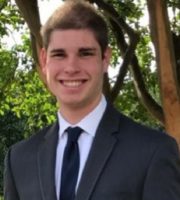
‘The legal profession needs a lot of reform,’ free market research says
Several conservative groups say an alternative to the bar exam in the state of Washington is a victory for limited government.
The state plans to create alternative pathways for attorneys with the goal of helping “historically marginalized groups,” according to a task force recommendation approved by the Supreme Court of Washington.
There will be three alternative paths to becoming a lawyer with the substance of each plan still to be determined: one for graduates, one for current law students, and a path to becoming a lawyer through an apprenticeship.
The change is “great news,” according to Shoshana Weissmann, a fellow with the R Street Institute. She researches and writes about occupational licensing reform. R Street supports “smaller, smarter government.”
She told The College Fix via email the “bar exam is proven to be a poor measure of a lawyer” and “a closed-book exam is silly.”
The state will keep the standard Universal Bar Exam but is also looking into allowing the NextGen Exam.
“The NextGen Exam is better positioned to assess the competencies practitioners are looking for in newly licensed lawyers,” the report stated. “The NextGen Exam will cut back on the number of topics tested, and within the topics, it will cut back on the amount of highly detailed information that graduates will need to memorize.”
“In the real world, lawyers would be disciplined for not looking up the law and consulting books and online resources when needed,” Weissmann said.
“The legal profession needs a lot of reform, and creating alternative pathways to licensure is a good start,” she said.
“Law school structure should also be changed to ensure lawyers learn how to be lawyers,” she said. “Too many graduates feel wholly unprepared for their first legal jobs.”
MORE: Journal rejects ‘white’ ‘male’ author’s pro-life article
A libertarian public interest legal group agrees alternative licensure is a good idea.
“Washington should be commended for opening new paths to legal licensure,” Institute for Justice attorney Paul Sherman told The Fix via email. He works on licensing reform and First Amendment issues.
“America is facing an access-to-justice crisis,” where there are Americans too poor to afford a good lawyer, but too rich to “qualify for free legal assistance,” according to Sherman.
He believes this reform will allow more people to enter the legal profession thereby helping to alleviate this crisis by getting rid of an exam that “bears little relation to the day-to-day practice of law.”
“Alternative paths involving supervised practice are more likely to teach aspiring lawyers the skills that they will actually need to serve their clients,” Sherman said. “If that result is more qualified people practicing law, the public can only benefit.”
The dean of Gonzaga University’s law school said he is generally supportive of reform but wants a slow approach. “I urged that we move in this direction cautiously and viewing it almost as a case study or a trial to see: How could the different schools implement it but [on] a small scale,” Dean Jacob Rooksby asked rhetorically, as reported by The Spokesman-Review.
States with diverse political views have adopted or are studying law license reform, including Oregon, Nevada, South Dakota, and Utah.
MORE: Minneapolis teams up with NYU law school to ‘reimagine policing’
IMAGE: Buritora/Shutterstock





Please join the conversation about our stories on Facebook, Twitter, Instagram, Reddit, MeWe, Rumble, Gab, Minds and Gettr.